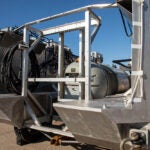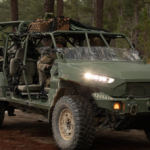
The Senate Armed Services Committee (SASC) is taking a different approach on military funding in its fiscal year 2017 defense authorization bill than its House counterpart.Instead of designating a portion of Overseas Contingency Operations (OCO) account for base expenses to necessitate a supplemental once wartime funds run out, SASC opted to keep the budget topline at the same level as the president’s request and will ask for additional money on the Senate floor, committee chairman John McCain (R-Ariz.) said on…












